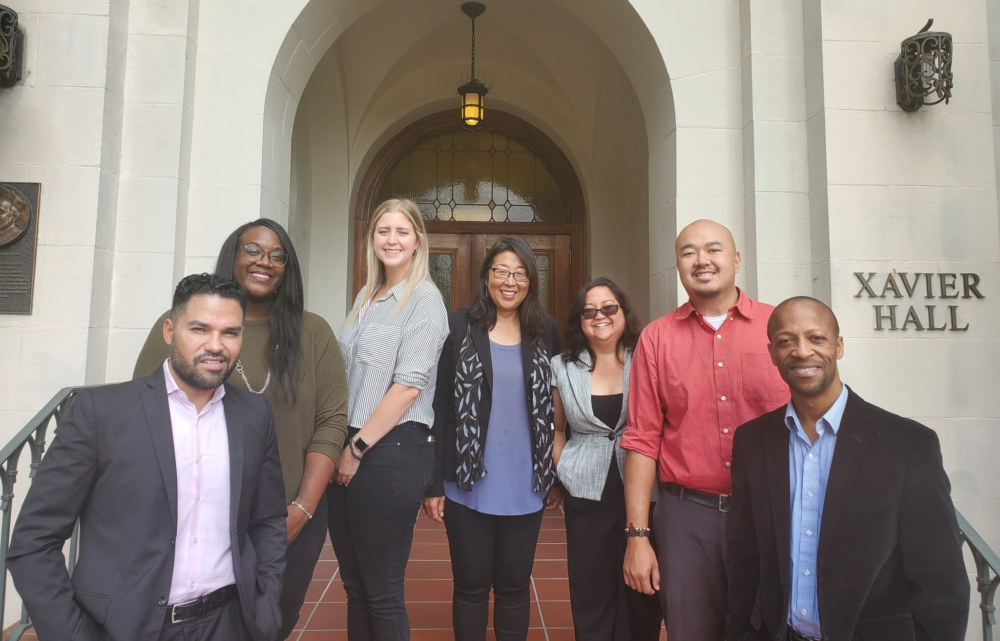

INTERCULTURAL AFFAIRS | The heat of early September often catches me by surprise. It seems that the advent of the fall semester should somehow immediately also include fall weather, the air crisp and cool, leaves on the cusp of changing colors. But, of course, that is my idea of what early September looks like, even though that is often not the reality of early autumn in Southern California. And I was born and raised in this state.
This observation reveals how, even when we know better, our expectations color our perceptions. Exposure to images and messages saturated with implicit bias can also influence us, even when they run contrary to the evidence of our own realities and truths.
And, while it is one thing to have expectations of what seasons ought to look like, it is an entirely different matter to be affected by overly simplistic, often negatively-hued, sketches of what people from different groups are like. Our perceptions of others – whether based on national origin, sexual orientation, language, religion, and gender identity, or even housing status, health/mental health conditions or any number of other social categories that represent boundaries between “us” and “them” — have consequences. And these consequences are not equally distributed.
Indeed, the consequences for others who are most similar to “us” tend to be positive (“in-group favoritism”), while for others who feel outside the boundaries of “us” and end up as “them,” the consequences can be negative (“out-group derogation” or “out-group bias”). That is how we are fundamentally cognitively wired. That is, we are wired for bias.
Implicit biases are “attitudes, both favorable and unfavorable, that are activated without awareness or intentional control … that are different from and sometimes in contrast to explicit self-reported beliefs.” At LMU, we recognize that we all have implicit biases and are actively working to counteract these invisible currents that continually shape our perceptions of the world, and others, around us.
This year, our proactive efforts are reflected in department-wide workshops to mitigate implicit bias during search processes (13 workshops thus far and counting). Additionally, staff, faculty, and students have other opportunities to learn about strategies for tackling implicit bias in department-specific retreats and initiatives. Although the distinction may feel subtle, the purpose of these efforts is not to promote preferential treatment for particular groups, but rather to recognize the negative impact systemic bias in our society has on them.
These efforts help us to not only build a more diverse community, but to also create a more inclusive campus community and climate. In our tenure-track searches, for example, the intentional efforts of our deans, departments, and careful, deliberative processes of our search committees and departmental faculty have enabled us to welcome an outstanding and diverse tenure-track cohort this fall. Pipeline programs such as the PhD Project have contributed to helping our faculty thrive: for example, three of our newly tenured professors in the LMU College of Business Administration demonstrate how it is possible to develop, recruit, and retain an outstanding diverse faculty through intentional mentoring and support. There are a number of affinity groups at LMU that provide informal support that also contribute to an inclusive climate, where a sense of belonging and connection can grow stronger.
At OIA, we are committed to cultivating an inclusive climate in which everyone can thrive. In our new monthly feature through LMU this Week, we will feature different elements and examples of efforts to promote an inclusive climate across our campus community. Stay tuned.
Jennifer Abe, Ph.D.
Special Assistant to the President for Intercultural Affairs
OIA Buzz
- Quote of the Month: “It is time for parents to teach young people early on that in diversity there is beauty and there is strength.” – Maya Angelou
- Celebrate: This month, we celebrate our incoming sophomores of the Academic Community of Excellence (ACE). As a strategic initiative of the Office of Intercultural Affairs, ACE is driven by the principles of inclusive excellence, access and equity, and student success. This year, ACE also celebrates its 15th Anniversary.
- Quick Tips for the Culturally Conscious: Individual Strategies to Reduce Implicit Bias
- Challenge Yourself: How often do you celebrate your successes? How often do you celebrate the successes of your colleagues and friends? This month, challenge yourself to highlight someone special to you and congratulate them for the hard work that they do.
- IMPLICIT BIAS: We are pleased to see the enthusiasm throughout campus on our implicit bias workshops. The fall 2019 IB workshop schedule is currently full. Keep an eye out for our spring schedule, coming soon.
OPEN HOUSE: OIA aims to create a space on campus where students, staff, and faculty alike can feel welcome, seen, understood, and celebrated. We invite you to come visit our new hall on Oct. 1 from 3 – 5 p.m. in Xavier Hall, first floor). There will be light refreshments and a small gift for attendees.



